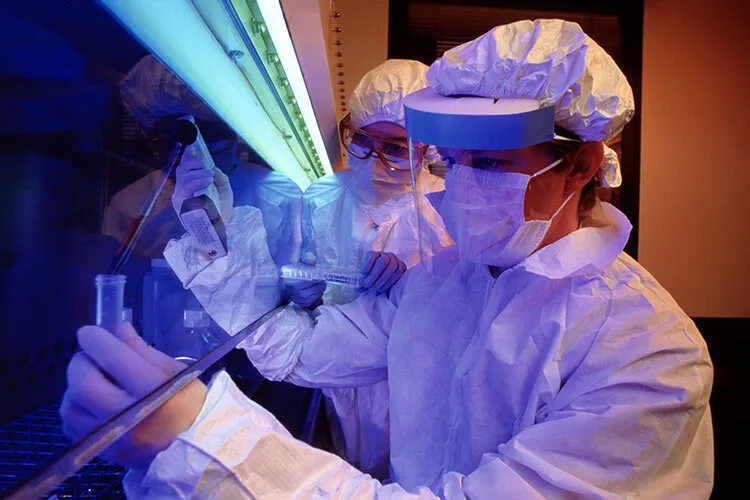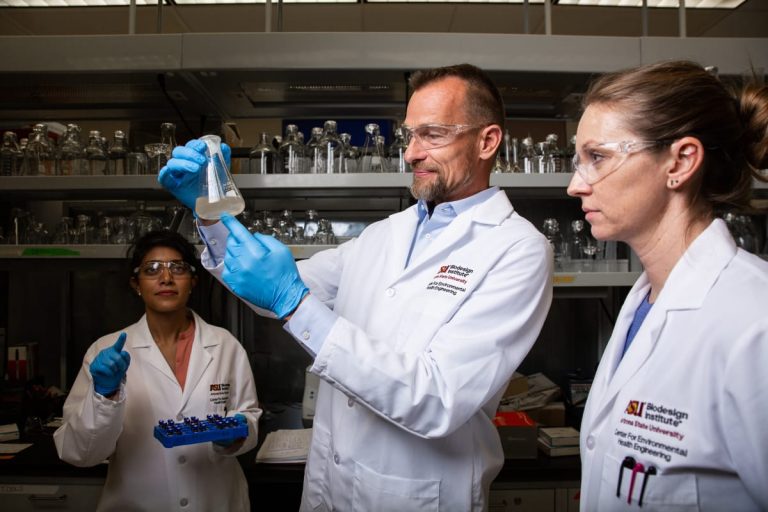In Latin America and the Caribbean, chronic diseases, such as cardiovascular illnesses, cancer and diabetes, are the main cause of death and disability. One in ten adults suffers from diabetes and eight out of ten deaths are attributable to them.
These are diseases that last a long time and progress slowly. In general, they appear at advanced ages and have no cure, they can only be controlled.
Due to its impact on human societies, Sergio Lavandero, director of the Advanced Center for Chronic Diseases (ACCDiS), has made it his mission to study the molecular and cellular bases that underlie the main cardiovascular diseases, such as diabetes, hypertension, myocardial stroke and heart failure.
#UTalcaTV 📺Enfermedades crónicas no transmisibles en #Chile 👉Premio Nacional de Ciencias Naturales, @sergiolavandero dijo que patologías han aumentado y afectan también a los jóvenes. Participó en aniversario de #CsSaludUTalca ✨ #28AñosFCSUTalcahttps://t.co/5SF1BtECd4
— Ciencias de la Salud UTalca (@CsSaludUTalca) November 27, 2023
“They are the leading cause of mortality in my country and the world, and they are incurable, so the only way to do something about them now is to appeal to prevention,” he says in an interview with TecScience.
Lavandero is winner of the 2022 National Prize for Natural Sciences in Chile, as well as a research professor at the Faculty of Chemical and Pharmaceutical Sciences of the Faculty of Medicine, University of Chile.
At ACCDiS, founded by the University of Chile and the Pontifical Catholic University of Chile, he and a group of researchers are dedicated to studying different aspects of chronic diseases, to advance our knowledge about them in Latin America.
In our interview, Lavandero explains what the most recent advances of his group are in relation to these diseases and what the collaboration agreement that they recently signed with the Institute for Obesity Research (IOR) of the Tec de Monterrey will be like.
“The emphasis they have [at IOR] on seeking the applicability of knowledge is something we share and are excited about,” he says.
<!–[if lte IE 8]>
<![endif]–>
Chronic Diseases: The Main Cause of Death in Latin America
What do we need to understand about chronic diseases to be able to cope with them better?
Chronic diseases are incurable until now, which means that we do not know exactly how they develop. While we decipher the molecular and cellular mechanisms behind them, the best we can do is focus on prevention, promoting healthy habits in the population such as not smoking, eating a healthy diet, exercising and sleeping adequately.
That is why in Latin America it is bery important to support the development of public policies with evidence based data to inform health authorities, schools and public facilities about these recommendations.
What is needed in Latin America to reduce the impact of these diseases?
In our country, like yours, we need investment, both public and private, in science, technology and innovation.
This is key because we need to develop local response capabilities that are independent of what is done abroad.
An Agreement between ACCDiS and the IOR
What are some of the most recent advances you’ve made on the molecular mechanisms behind chronic diseases?
Cardiovascular diseases, such as diabetes, hypertension, heart attack and arrhythmia, all end in what we call the final phase, with heart failure. Until recently, we had characterized this insufficiency as the result of a weakness of our heart when expelling blood, known as contractile dysfunction.
However, today what we have found in patients who accumulate different diseases, such as obesity, diabetes, hypertension, is a form of heart failure in which the fundamental difficulty that the heart has is relaxing. For this reason, until a few years ago there was no animal experimental model that faithfully imitated what happened in our patients. In collaborative work between my group and the Department of Cardiology at the University of Texas, Western Medical Center in Dallas, we developed that first animal model and described a mechanism that could begin to explain the damage that occurs.
At the same time, we are also trying to discover new molecular targets that allow the development of drugs to prevent this heart failure.
What are some of the most important findings of ACCDiS?
We have been well known for discovering a molecule, angiotensin II, that plays a role in regulating cardiovascular and kidney function. From this discovery we have developed what we call mimetic peptides that have a cardioprotective action.
What does the agreement between ACCDiS and the IOR consist of?
Both we as a center, and Tec de Monterrey, are interested in preventing chronic non-communicable diseases that are so common in our countries. Therefore, we want to exchange knowledge, experiences, do joint research, exchange students and researchers.
We are very happy to have signed it because the projections look interesting and I hope it is the beginning of a great long-term collaboration.
I like that they also have the concept of seeking applicability, not only basic research, but the possibility of that information being transferred to society.
















